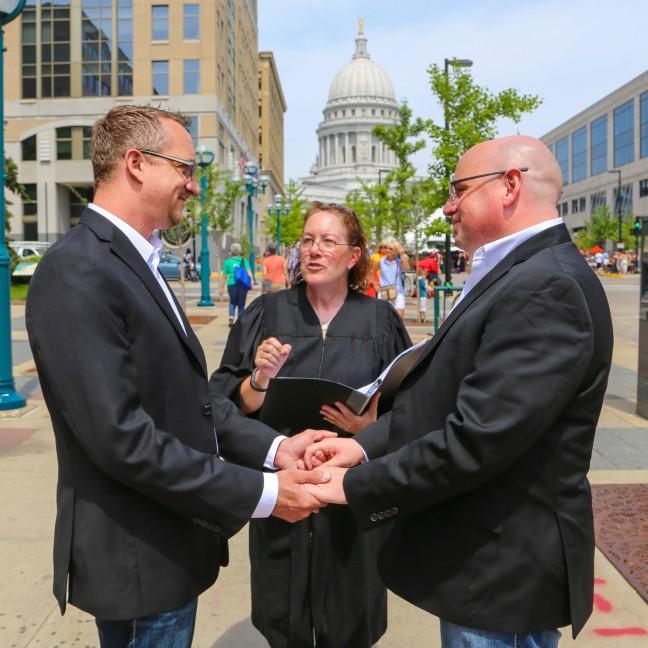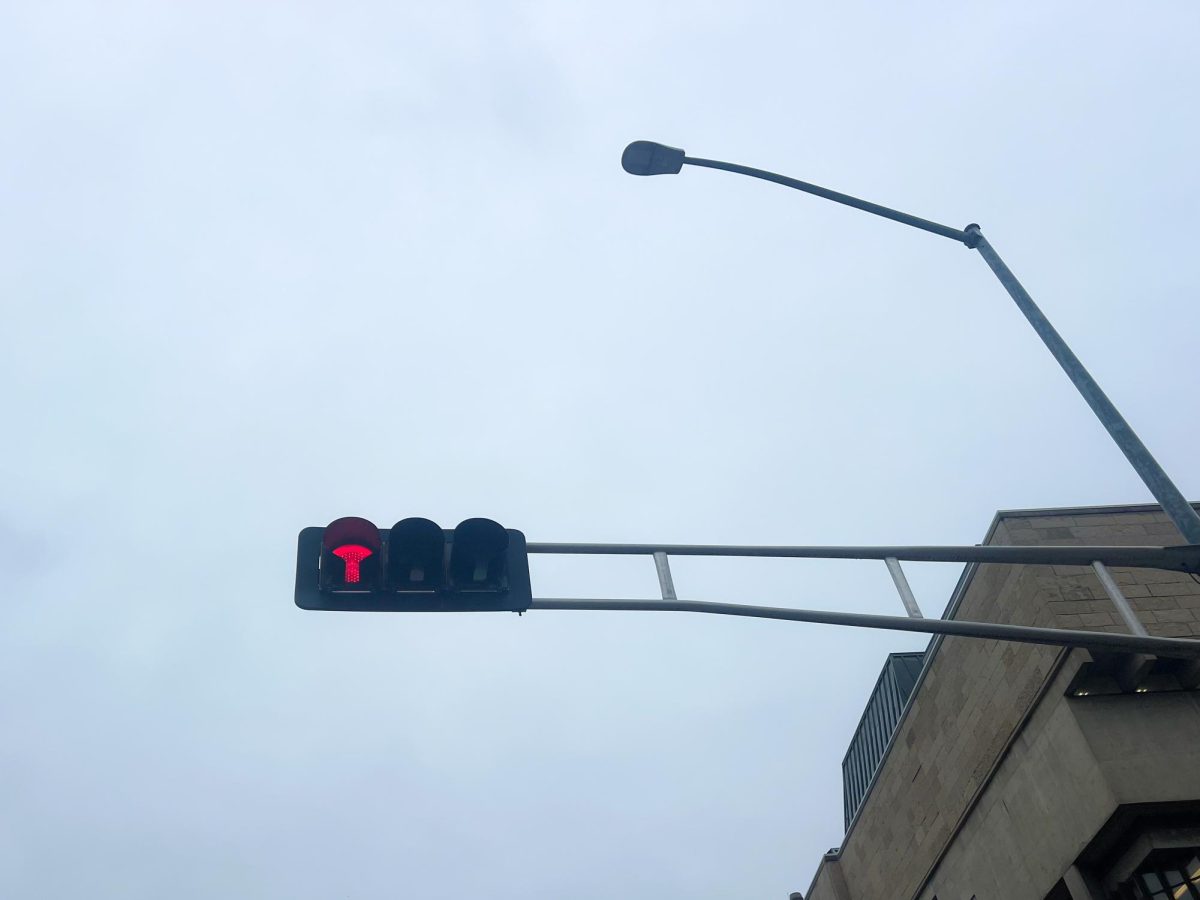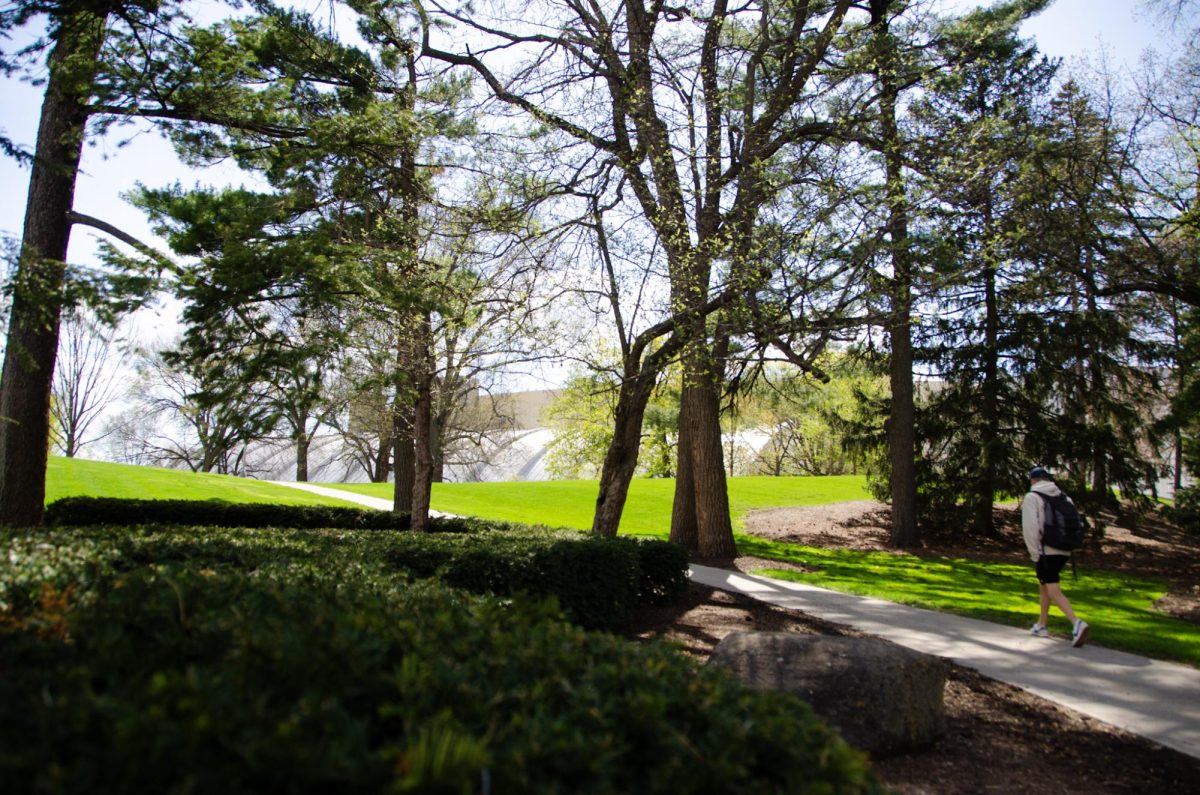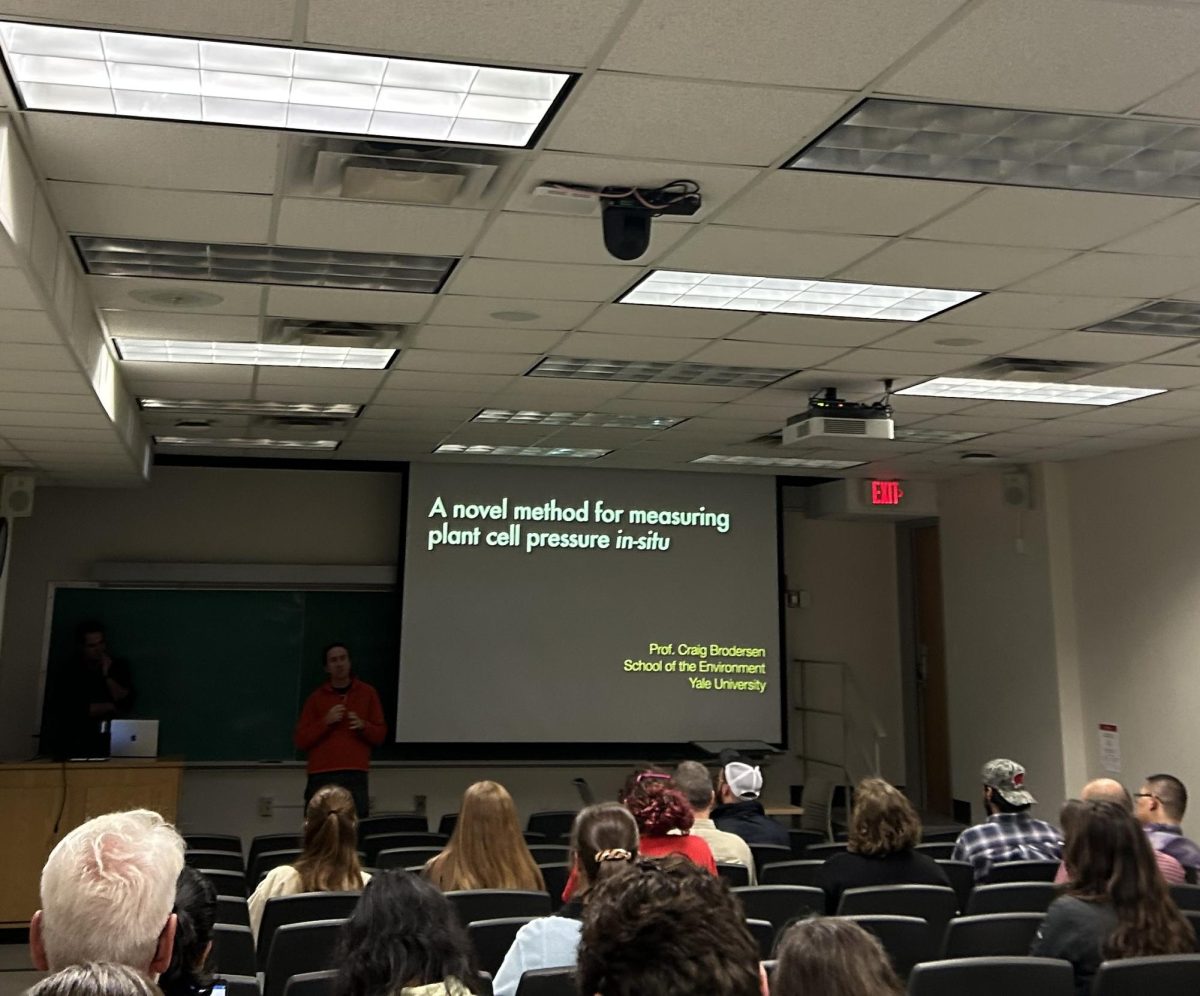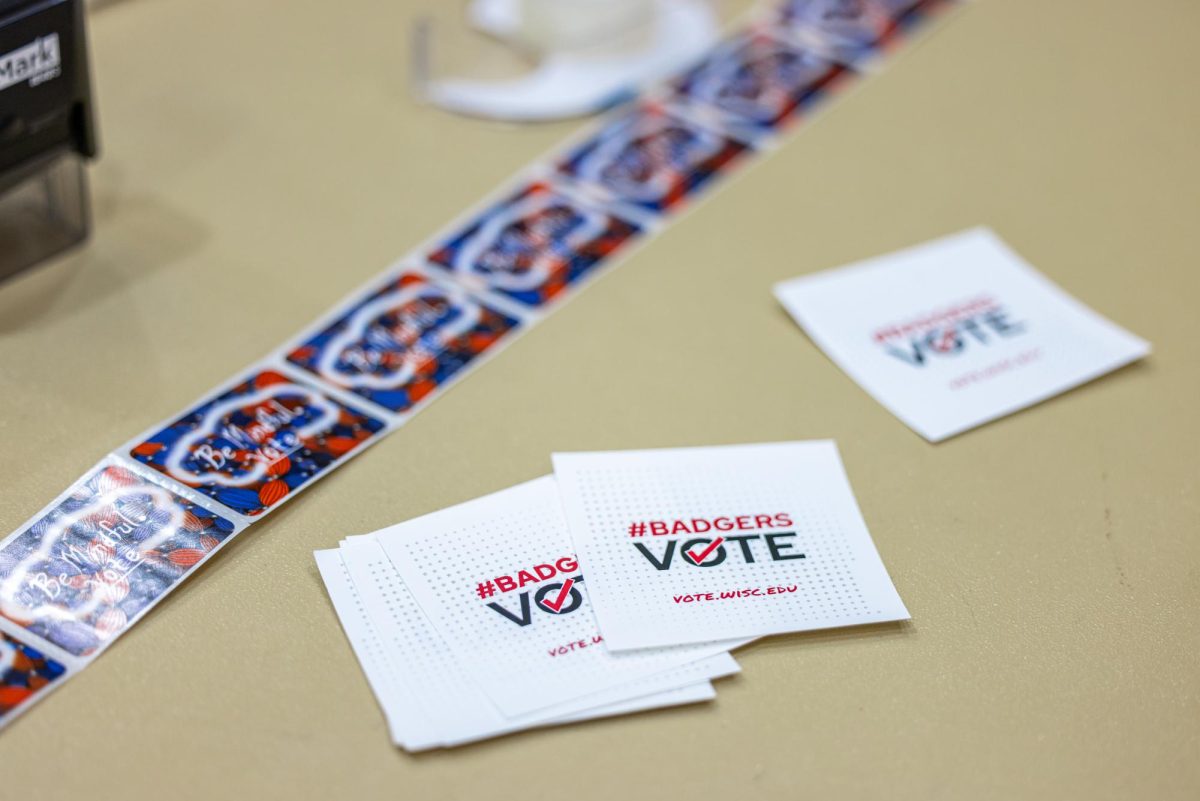Same-sex marriages are back on in Wisconsin after the U.S. Supreme Court refused to take up appeals from five states whose same-sex marriage bans were invalidated in federal court.
By deciding not to take up appeals from the states, which included Wisconsin, the high court effectively ensured an appeals court ruling overturning Wisconsin’s ban remained.
Appeals court finds Wisconsin, Indiana same-sex marriage bans unconstitutional
“When that happened, in our case it means that the U.S. Seventh Circuit [Court of Appeals] decision in Chicago is upheld,” Dane County Clerk Scott McDonell said. “So their decision to strike down the same-sex marriage ban in Wisconsin is now the law of the land.”
The Supreme Court action effectively removed a stay, or block, that a federal judge put on her own ruling. While U.S. District Court Judge Crabb ruled Wisconsin’s ban was unconstitutional, she blocked her ruling a week later, letting higher courts weigh in on the case.
During that week, numerous same-sex couples throughout the state married as clerks began issuing marriage licenses.
Wisconsin Attorney General J.B. Van Hollen appealed Crabb’s ruling, as well as the federal appeals court ruling that followed. He said in a statement the state’s Department of Justice will now ensure Crabb’s order is followed.
“The Seventh Circuit affirmed the District Court’s decision holding Wisconsin’s Marriage Protection Amendment unconstitutional, and the Supreme Court has declined the opportunity to examine that decision,” Van Hollen said. “It is now our obligation to comply with those court decisions.”
“I encourage everyone to respect the Court’s action and to administer the law fairly and impartially. Once the District Court formally lifts the stay, officials must apply the marriage law consistent with the District Court’s order and the Seventh Circuit’s decision.”
The Dane County Clerk’s Office began issuing marriage licenses today during their business hours of 8 a.m. to 4 p.m.
The action from the Supreme Court means it will not be brought up again in this term, McDonell said.
“Part of the message I’m trying to get out is that there isn’t an ability to appeal this decision,” McDonell said. “So folks should take their time and make their plans, invite their family and set up their wedding. They don’t need to worry about some impending decision that might take that right away.”
Noting that many same-sex couples have waited decades to get married, McDonell called today’s decision “a huge victory for same-sex couples who’ve been denied their basic constitutional rights for far too long.”
The other states who appealed court rulings on their bans were Virginia, Indiana, Oklahoma and Utah.
For the American Civil Liberties Union, which sued against the ban on behalf of eight same-sex couples couples, the Supreme Court’s action came as a surprise.
“The lesson here is that for anyone who tries to predict what the Supreme Court is going to do better be careful,” Chris Ahmuty, the ACLU of Wisconsin executive director, said at a news conference.
Judi Trampf, who along with her fiancée Katy Heyning were plaintiffs in the suit, said she was “shocked” when she heard the news and “double-checked everywhere on the Internet” because few people expected the Supreme Court’s action.
Trampf said they were waiting to marry until everyone else could.
“We had the feeling we needed to do this for everyone in Wisconsin, and we were not going to get married or do anything until every single couple in Wisconsin could get married,” Trampf said.
Julaine Appling, president of Wisconsin Family Action, said in a statement with “other similar appeals still awaiting resolution” in other appeals court circuits, Wisconsin’s same-sex marriage ban could be in effect again.
“The Supreme Court appears to be waiting for these pending outcomes before they decide to weigh in,” Appling said. “Should the Supreme Court ultimately determine that indeed the states, and more importantly, we the people, have the right to determine the definition of marriage in our individual states, then at that time our amendment would again become the law in our state.”
She also said Wisconsin citizens will soon start seeing further abridgment of “conscience and religious freedom rights … trickle down to communities and schools. This issue is far from being over.”


